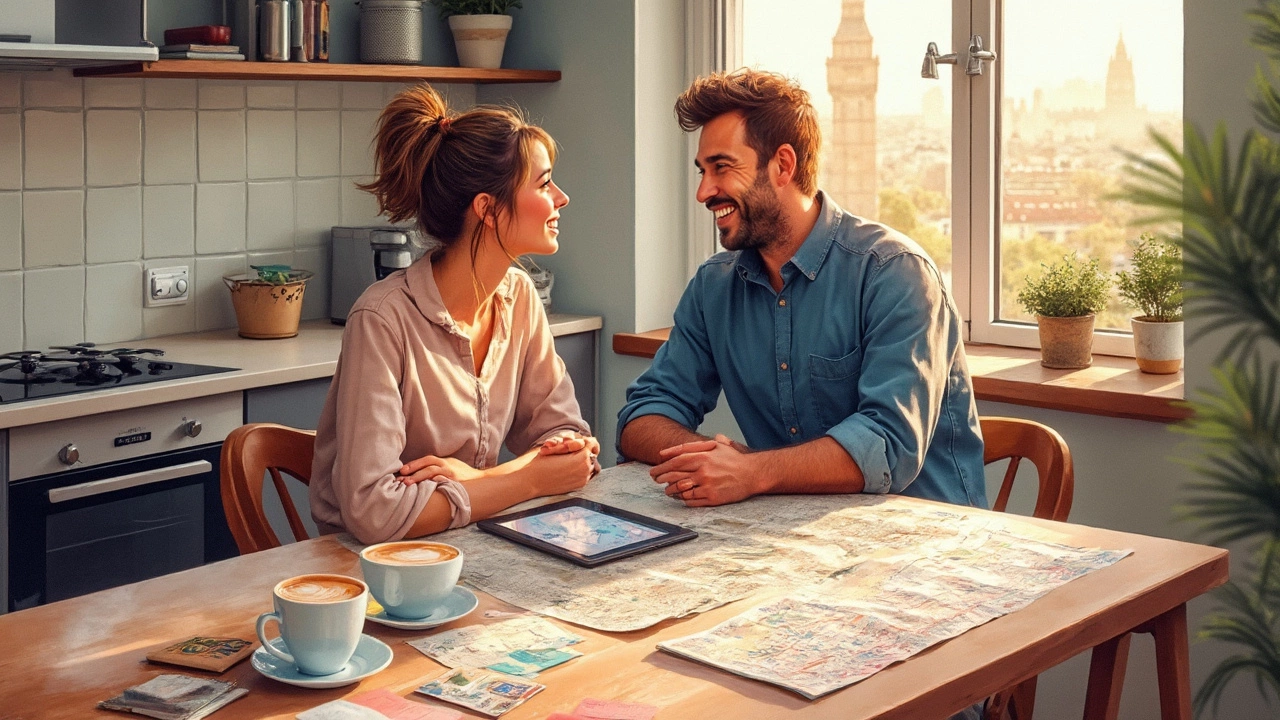Travel Budget: Simple Tips to Stretch Your Money
Getting ready for a trip can feel pricey, but a solid budget can keep the stress away. You don’t need a fortune to see the UK’s best sights. Below you’ll find clear steps to map out costs, cut waste, and still have a great time.
Plan Your Budget Like a Pro
Start with a quick spreadsheet or a budgeting app. List the big categories: transport, accommodation, food, activities, and a tiny buffer for emergencies. Look at past trips or use online calculators to guess average prices. For example, a coach from London to York costs about £15, while a train might be £30‑£45. Knowing the range helps you decide where to splurge and where to save.
Next, set a daily limit. If you aim for £70 a day, split it: £25 for transport, £30 for lodging, £15 for meals and drinks. Adjust the numbers to match your style – families may need more for meals, solo travelers might spend less on accommodation.
Don’t forget hidden fees. Some hostels charge a city tax, and certain attractions have online booking fees. Add a 5‑10% cushion to each line item and you’ll avoid nasty surprises.
Smart Ways to Save on the Road
Transport is the biggest budget breaker, so pack tricks to cut it down. Railcards shave off up to 1/3 of train fares – a 16‑25 Railcard costs £30 and can save you £100+ on a two‑week adventure. For longer routes, consider split‑ticketing apps that find cheaper segments you can book separately.
Coaches remain the cheapest option for most city hops. Companies like National Express and Megabus run promo codes regularly. Subscribe to their newsletters for flash deals; a £5 ticket from Manchester to Edinburgh isn’t rare.
When it comes to where you sleep, look beyond hotels. Budget chains, B&Bs, and well‑rated hostels often include free breakfast, which trims food costs. If you’re comfortable with a bit of planning, Airbnb’s “instant book” rooms can be cheaper than a hotel, especially if you book a week in advance.
Food doesn’t have to be a budget killer either. Supermarkets offer ready‑made meals for under £5, and many towns have street stalls serving hearty portions at half the price of a sit‑down restaurant. Pack a reusable water bottle – tap water is safe across the UK and you’ll save on pricey bottled drinks.
Lastly, hunt for free or low‑cost attractions. Museums like the British Museum and the National Gallery have free entry. Parks, hiking trails, and historic towns often charge nothing. If you want a guided experience, check local tourism offices for discounted day passes.
Stick to your plan, track every expense, and tweak as you go. A travel budget isn’t a prison; it’s a tool that gives you confidence to explore more without breaking the bank. With these tips, your next UK adventure can be unforgettable and affordable.

Are Guided Tours Worth It? Comparing Guided Tour Costs with DIY Travel
Explore if guided tours are cheaper than independent travel. Learn about real costs, hidden savings, and smart tips to get the best value for your next adventure.

Good Budget for a 3-Day City Break: What to Expect
Trying to figure out what a good budget looks like for a 3-day city break? Get clear tips for planning your spending on accommodation, food, local transport, sights, and little extras. Learn how much you might need in different cities and ways to stretch your money further. This guide covers realistic examples, travel hacks, and upfront numbers to help you avoid surprises. Find practical advice for every type of traveler. Take the guesswork out of planning your short escape.

Should You Pay for an All-Inclusive Resort?
Deciding to pay for an all-inclusive resort involves weighing convenience against cost. These packages offer ease with meals, drinks, and activities bundled together, but they might not be the best choice for travelers seeking authentic local experiences. Consider your travel style and budget before committing to ensure a fulfilling vacation that doesn't break the bank.

Worst State for Cost of Living: A Holiday Guide
Looking to travel but worried about your budget? Discover which U.S. state tops the list for the highest cost of living. We'll guide you through practical tips to navigate expenses and maximize your holiday deals, ensuring you get the best value for your money. From accommodation to dining, this article offers insights on where your dollar might stretch further—or not—whether you're planning a quick visit or an extended stay.
